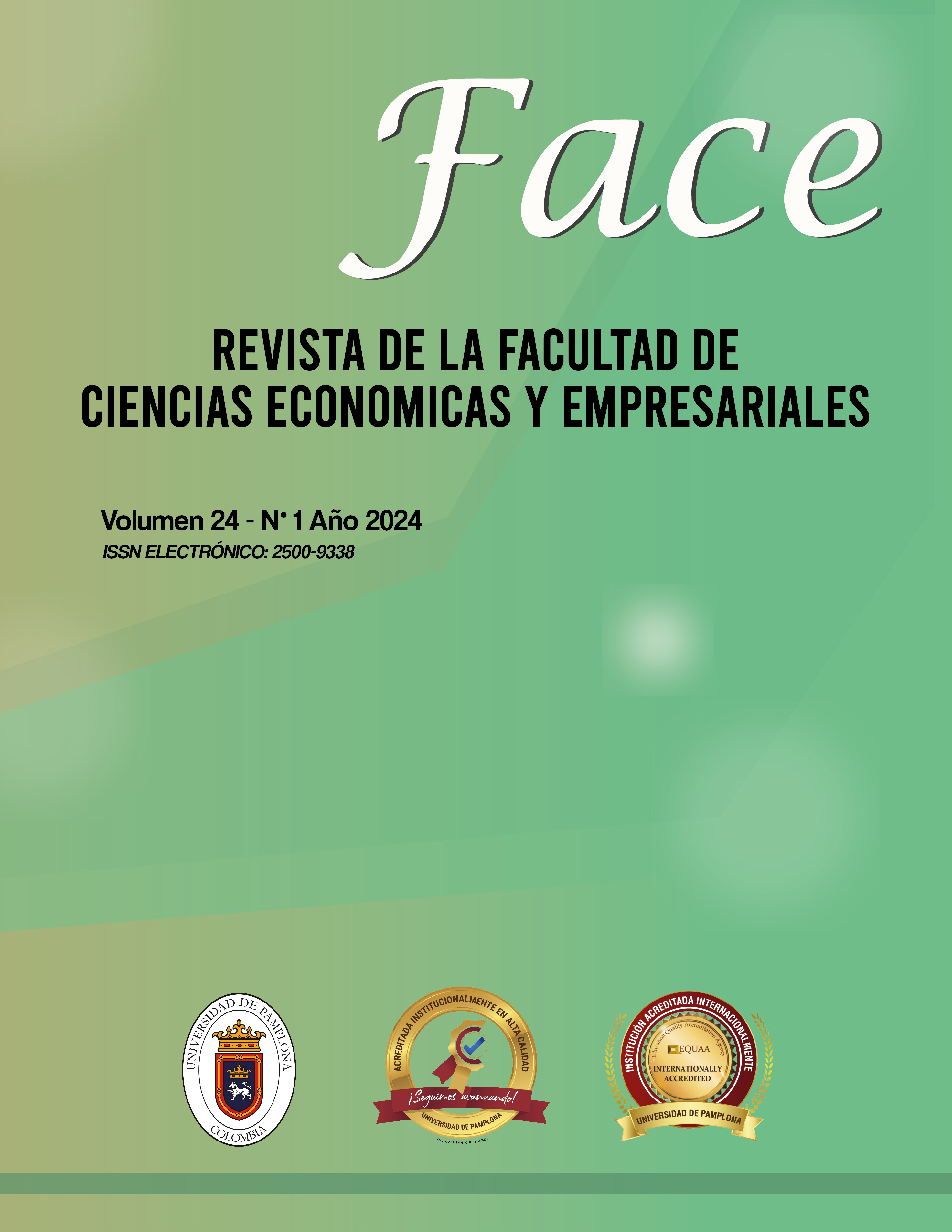Analysis of the variables that affect the learning of Colombian centennials.
DOI:
https://doi.org/10.24054/face.v24i1.3003Abstract
The learning process is fundamental for all generations, but in the case of centennials (the generation born approximately between the mid-90s and mid-2010s), it acquires distinctive characteristics due to the technological and social environment in which theyhave grown up, such as, for example, digitalization and technological adaptation, the skills developed in the 21st century such as creativity and the ability to solve problems, the accelerated changes in the labor market due to automation and globalization, social and cultural awareness and personal empowerment, among others.This is why it is necessary to understand a generation of young Colombians who are studying the last years of secondary education, as well as those who are in the first semesters of higher education, who learn and study in a different way and In the short future they must make decisions for their future.Therefore, the learning process today is essential for centennials, as it allows them to adapt to a constantly changing world, develop relevant skills for the 21st century, better understand social and cultural issues, and become personally empowered to achieve their goals. and contribute to society. Accordingly, the objective of this work is to be able to analyze some of the identified variables that affect the learning of Colombian centennials
Downloads
References
Bloom, B. (1990). Taxonomía de los objetivos de la educación. Buenos Aires: El Ateneo.
Cuenca, Álvarez, Ontaneda, Ontaneda & Ontaneda (2021). La Taxonomía de Bloom para la era digital: actividades digitales docentes en octavo, noveno y décimo grado de Educación General Básica (EGB) en la Habilidad de Comprender. Revista Espacios, 42(11), Artículo 02. Recuperado de https://www.revistaespacios.com/a21v42n11/a21v42n11p02.pdf
Díaz-Ortega, N. I., & García-Mogollón, J. M. (2022). Sistema Dupont: factores influyentes de la rentabilidad en empresas del sector manufacturero. Revista De Investigaciones Universidad Del Quindío, 34(S5), 291–300. https://doi.org/10.33975/riuq.vol34nS5.1123
Gagné, R. (1970). Las condiciones del aprendizaje. Madrid: Aguilar.
Ortega-Vivanco, M., Fischer, L., Peñalosa, M., & Gómez, E. L. (2021). Efectos del Covid-19 en el comportamiento de compra de la Generación Z, un estudio en Ecuador, México y Colombia. En XVI Congreso Ibérico de Sistemas y Tecnologías de la Información (CISTI), Chaves, Portugal, págs. 1-7. https://doi.org/10.23919/CISTI52073.2021.9476477
Peñalosa Otero, M. E., & López Celis, D. M. (2016). La generación de los millennials frente al consumo socialmente responsable. Cuadernos Latinoamericanos De Administración, 12(23), 73–82. https://doi.org/10.18270/cuaderlam.v12i23.2127
Piaget, J. (1977). The role of action in the development of thinking. En Knowledge and development (pp. 17–42). Springer US.
Piguave-López, J. A., & Castillo-Guerrero, J. R. (2017). La motivación y su incidencia en la calidad del desempeño escolar. Universidad de Guayaquil. Facultad de Filosofía, Letras y Ciencias de la Educación.
Reeve, J. (2010). Motivación y emoción. McGraw-Hill.
Leal, I. L., Guerrero Jaimes, R. M., & Mogollón García, M. (2023). Model of marketing to counteract the economic crisis in sector of footwear articles in Cúcuta, Colombia. Universidad Y Sociedad, 15(S3), 120–131. Recuperado de https://rus.ucf.edu.cu/index.php/rus/article/view/4218
Vygotsky, L. S. (1995). Pensamiento y lenguaje. Barcelona: Paidós.
Published
Versions
- 2024-04-27 (7)
- 2024-04-27 (6)
- 2024-04-27 (5)
- 2024-04-27 (4)
- 2024-04-27 (3)
How to Cite
Issue
Section
License
Copyright (c) 2024 FACE: Revista de la Facultad de Ciencias Económicas y Empresariales

This work is licensed under a Creative Commons Attribution-NonCommercial-ShareAlike 4.0 International License.





